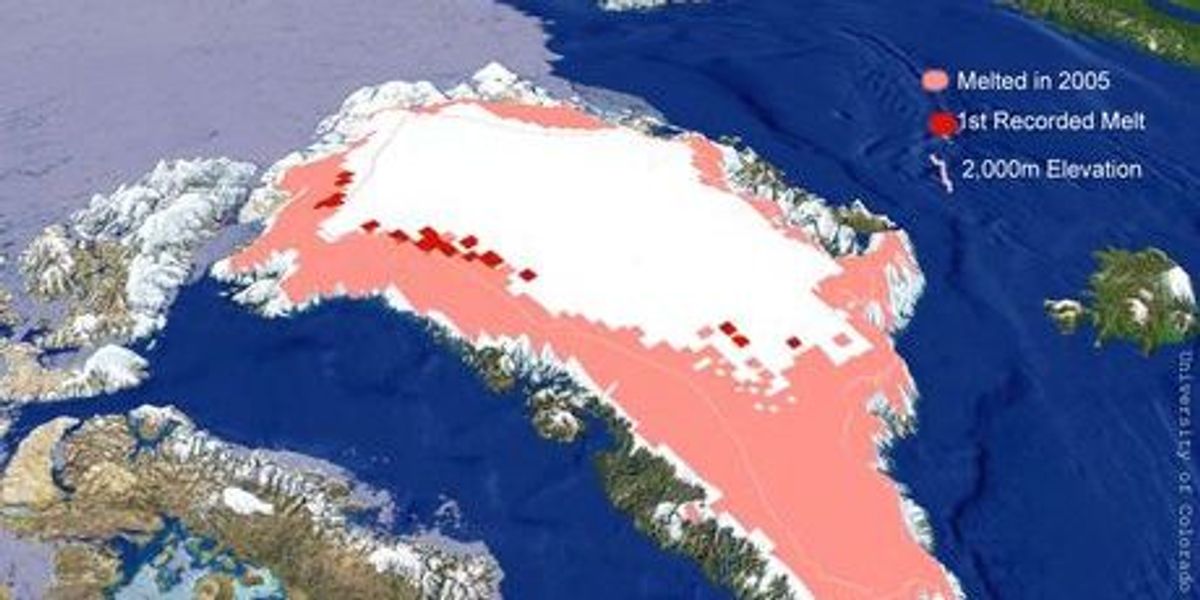Those attentive to science news developments—and many members of the general public—will have heard mention this week of rising sea levels. The main reason was publication yesterday by Science magazine of two major research articles, along with a news summary and commentary. The one getting most of the attention comes from a team led by Andrew Shepherd of Leeds University in the UK and is called "A Reconciled Estimate of Ice-Sheet Mass Balance." A second article, by Ian Joughin and colleagues delves into the dynamics of how the great Greenland and Antarctic sheets melt and disintegrate as warm waters intrude.
The importance of the Shepherd article is that it confirms the general estimates of ice sheet destruction made in a 2007 report of the Intergovernmental Panel on Climate Change (IPCC), while greatly narrowing the range and increasing the certainty of the IPCC's estimates, as a Science magazine press release explains. "Altogether, Greenland and Antarctica are now losing more than three times as much ice (equivalent to 0.95 mm of sea level rise per year) as they were in the 1990s (equivalent to 0.27 mm of sea level rise per year)." Shepherd's group concludes that ice sheet melting has accounted for about one-fifth of the world's sea level rise since 1992.
Unless you happen to be a Science subscriber or a member of the science press, most material appearing in the journal is behind a firewall. If that represents a problem, you can begin by looking at the sea ice report with which Brian Williams of NBC news led off the Thursday evening national newscast. To delve more deeply into the subject, watch the webcast of a 12 November conference sponsored by Columbia University called, "Warming Arctic, Changing Planet," which is available on YouTube.
While you're at it, you may want to buy access to the article about how melting Arctic ice is stacking the deck in favor of harsher North American and European winters, which is in the current issue of Scientific American. A graphic in the article does a particularly nice job of accounting for why last winter presented an unusual combination of colder-than-normal weather in Europe and warmer-than-normal weather in the United States. An opinion article in the same issue argues that geoengineering may be the only way to cope with what the editors call "the Arctic death spiral."



